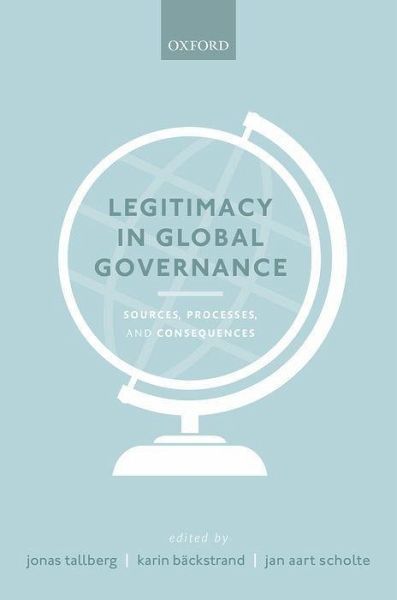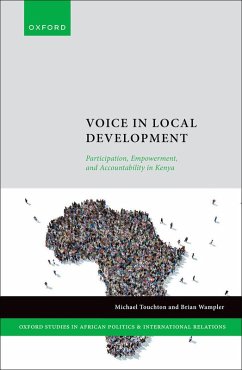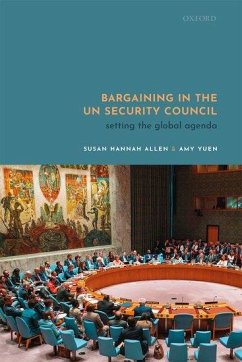
Gebundenes Buch
Legitimacy in Global Governance
Sources, Processes, and Consequences
Herausgeber: Tallberg, Jonas; Scholte, Jan Aart; Backstrand, Karin
Versandkostenfrei!
Versandfertig in über 4 Wochen

PAYBACK Punkte
59 °P sammeln!




This book examines legitimacy in global governance - that is, how people, from citizens to elites, perceive of institutions such as the United Nations, International Monetary Fund, and European Union.
Jonas Tallberg is Professor of Political Science at Stockholm University. His research interests are global governance and European Union politics. He currently directs the research program 'Legitimacy in Global Governance' (LegGov), funded by Riksbankens Jubileumsfond. Previous publications include The Opening Up of International Organizations: Transnational Access in Global Governance (Cambridge University Press, 2013, co-authored) and Leadership and Negotiation in the European Union (Cambridge University Press, 2006). His articles have appeared in journals such as International Organization, International Studies Quarterly, British Journal of Political Science, and European Journal of International Relations. Karin Bäckstrand is a Professor in Environmental Social Science at the Department of Political Science at Stockholm University. Her research revolves around global environmental politics. Karin's work appears in journals such Global Environmental Politics and European Journal of International Relations. She is co-editor of The Research Handbook on Climate Governance (with Eva Lövbrand, Edward Elgar, 2015), Rethinking the Green State: Environmental Governance towards Climate and Sustainability Transition (with Annica Kronsell, Routledge, 2015) and a special issue in Environmental Politics titled 'Non-state actors in the new landscape of climate cooperation' (with Jonathan Kuyper, Björn-Ola Linnér and Eva Lövbrand, 2017). Jan Aart Scholte is Professor of Peace and Development in the School of Global Studies at the University of Gothenburg, as well as co-director of the Centre for Global Cooperation Research at the University of Duisburg-Essen. Previous publications include Globalization: A Critical Introduction (Palgrave Macmillan, 2005) and Building Global Democracy? Civil Society and Accountable Global Governance (editor, Cambridge University Press, 2011). He is a former lead editor of the journal Global Governance.
Produktdetails
- Verlag: Oxford University Press
- Seitenzahl: 372
- Erscheinungstermin: 11. Dezember 2018
- Englisch
- Abmessung: 241mm x 164mm x 27mm
- Gewicht: 563g
- ISBN-13: 9780198826873
- ISBN-10: 0198826877
- Artikelnr.: 52713136
Herstellerkennzeichnung
Libri GmbH
Europaallee 1
36244 Bad Hersfeld
gpsr@libri.de
Für dieses Produkt wurde noch keine Bewertung abgegeben. Wir würden uns sehr freuen, wenn du die erste Bewertung schreibst!
Eine Bewertung schreiben
Eine Bewertung schreiben
Andere Kunden interessierten sich für











